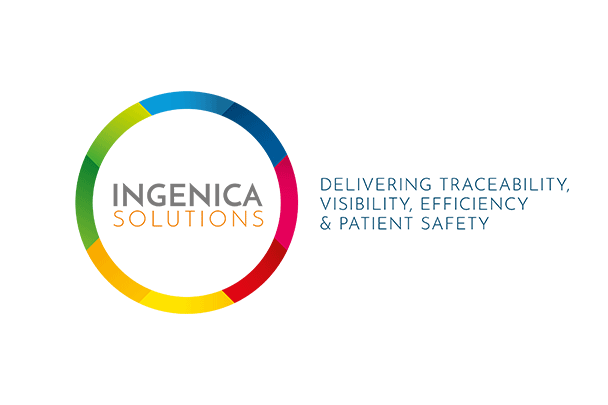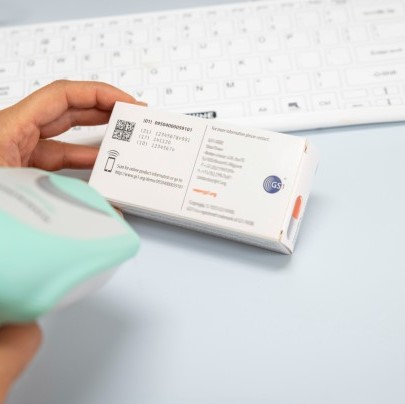March 16, 2022 Guest opinion piece
While traceability should be a core element of every supply chain, it is especially important in clinical settings where failures can pose serious risks to patient safety.
Traceability allows us to easily and quickly identify when, where and by whom products were produced, how and which suppliers were involved, to which individual the product was delivered, where it was delivered to, and when. As well as playing a vital role in safeguarding patients against clinical errors, it also enables appropriate action to be undertaken quickly should one occur.
In short, combining traceability with unique identification prevents errors, increases quality, drives efficiencies, and reduces costs.
For this to truly work, two essential components are required: tracking and tracing. Tracking enables us to pinpoint the destination of a particular product, following its journey from the point of manufacture to consumption. Tracing creates a reliable history of this journey, providing vital information about the products origins and movements.
With the NHS under increasing pressure due to rising demands on and expectations of its services, traceability is no longer optional. That is why GS1 UK is working towards ensuring one standardised unique identification code for all products, patients, caregivers, locations, and assets using identifiers such as one- and two-dimensional barcodes.
All patients deserve the best possible care and our work with partners such as Ingenica Solutions plays an important part in ensuring they receive it.

An IT solution provider driving dramatic improvements in back-office efficiency, Ingenica has fully supported the implementation and integration of the GS1 standard across the healthcare sector.
By championing the adoption of standards through accreditation, compliance, and best practice, they are enabling access to trusted data, enhancing inventory management processes, and ultimately improving patient outcomes.
With the help of Ingenica’s sponsorship, we look forward to building on the key themes of patient safety and digital transformation at the GS1 UK Healthcare Conference this week, where will be joined by partners, members and healthcare providers from across the UK to explore the power of GS1 standards in shaping the future of healthcare.
Anne Godfrey, CEO of GS1 UK

Track and trace in action
Steve Saunders, sales manager at Ingenica Solutions, shares his insights on the benefits of effective track and trace in healthcare
Improvements in supply chain processes help healthcare organisations achieve long-term financial and operational efficiencies and contribute to better patient safety. An example of this is the tracking and tracing of medical supplies throughout the supply chain, such as high value implants, from point of manufacture to point of care.
What this does is allows NHS trusts to build a picture of usage - who, what, where and when products are used on patients.
The benefits of this are enormous, and importantly, it’s not simply a quick fix, these benefits are sustainable in the long-term. From the financial aspect such as reducing wastage, cutting spend and facilitating patient level costing, to the non-financial wins; there is much to be gained. The ability to enable more data driven decision making which in turn helps improve patient safety for instance is one of the key non-monetary benefits, along with the ability identify expired stock or the ability to swiftly undertake product safety recall.
What we’re seeing is that healthcare organisations are increasingly adopting innovative technology to improve procurement and supply chain processes, to achieve the exact benefits above. They are choosing options that do not negatively impact clinical staffing levels or quality of care but instead facilitate better ways of working.
Ingenica Solutions’ expertise in delivering track and trace solutions for the NHS is far reaching and our connections across the sector have enabled many NHS trusts to have a 360-degree view of supply chain cost drivers; tracking and tracing products across an entire trust estate and wider. This technology also contributes to better patient safety, tracking and tracing products to the point of use. As innovations continue to evolve, there will be the opportunity to track people and equipment to further improve efficiencies.

Back-office benefits
Our experience in the sector has shown that for us the focus is the back-office of healthcare. Why? Because it is a somewhat neglected area and hence there are many opportunities to use technology to improve information, reduce administration and make efficiencies.
So, who is doing this, what trusts are being positioned as examples of best practice and what level of progress is being made? Within our sphere of work, there are several NHS trusts that need a shout out for all their hard work and commitment to transforming outdated processes and overhauling outdated systems.
Technology has been instrumental in reshaping the entire back office in these examples, releasing clinical time to patient care.
One to watch is Royal Cornwall Hospitals NHS Trust, a Department of Health’s Scan4Safety demonstrator site for the adoption of GS1 and PEPPOL standards (Scan4Safety: the Government initiative to improve patient safety and operational effectiveness and efficiencies across the entire supply chain). The team there have made outstanding, award-winning progress, and have insight to share on using GS1 standards to improve the supply chain, and equally share the challenges faced along the way.
As the first GS1 certified solution for inventory management in the NHS, our team has seen significant change over the years. At one end of the scale, some trusts have achieved remarkable progress while at the other end, there remain hospitals that are yet to embark on their journey. The GS1 conference will provide an opportunity to celebrate the gains and the incredible achievements made while also encouraging and supporting those trusts that have not begun the process; helping to ensure supply chains are operated and managed in way that is fit for purpose in today’s healthcare space.

Steve Saunders, sales manager, Ingenica Solutions

About Ingenica Solutions
Ingenica Solutions is a leading player in the healthcare market. It has a proven track record in delivering IT solutions in the areas of procurement, supply chain, inventory management, and the back-office which improve financial and operational efficiencies in the NHS.
As the first GS1 certified solution for inventory management in the NHS, the company’s award-winning solution, Ingenica Solutions’ 360 IM, provides a 360-degree view of cost drivers; tracking and tracing products, people, and equipment to improve procurement and supply chain process.
Unlike other solutions, it is configurable across multiple areas with different processes; flexible and scalable to meet multi-faceted, challenging clinical environments, with a proven development and functionality future roadmap.
Furthermore, its solution meets Government requirements for inventory management (e-Procurement strategy, GS1 standards, PEPPOL, patient level costing, track, and trace).
